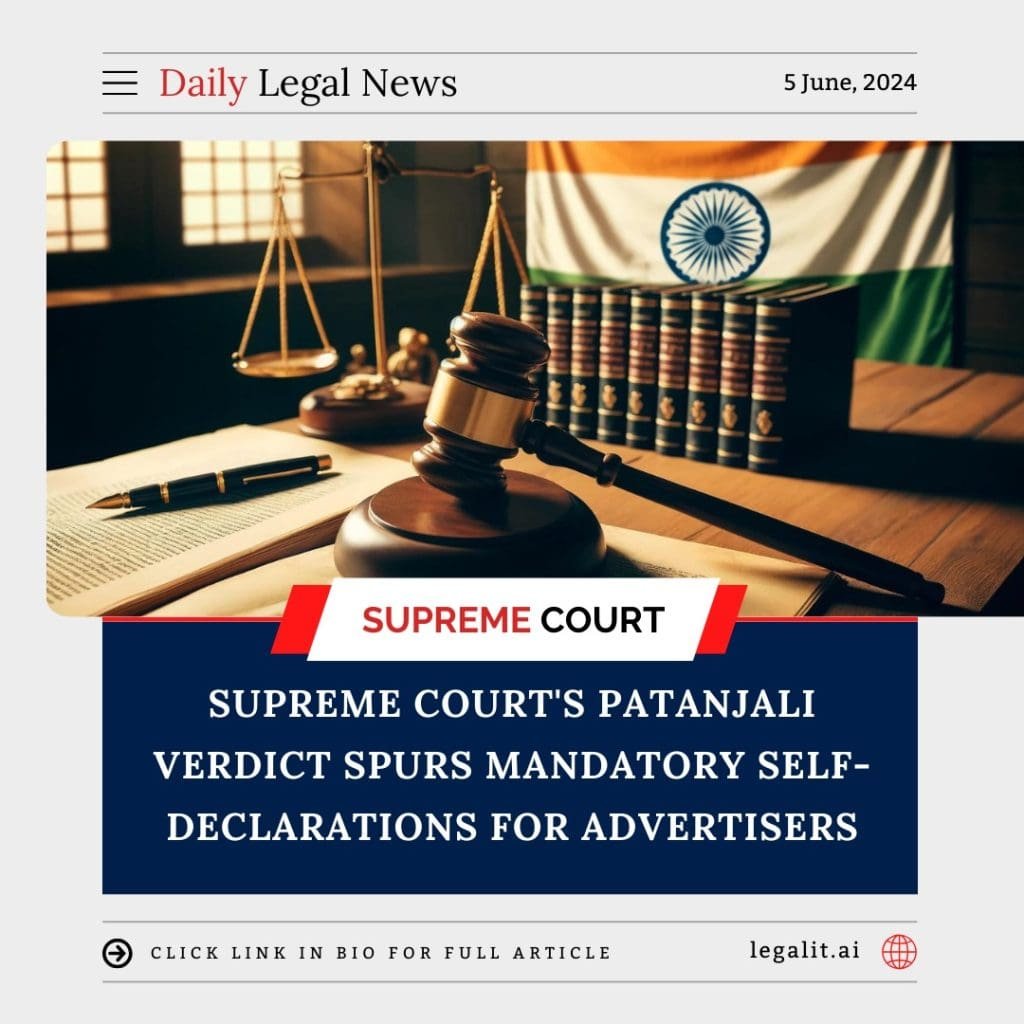
Supreme Court’s Landmark Decision on Misleading Advertisements
In a significant move aimed at curbing misleading advertisements, the Supreme Court has directed the Centre to mandate self-declaration certificates from advertisers. This ruling comes in the wake of the Patanjali misleading ads case, where the court found the company guilty of making unverified claims about its products.
Key Directives from the Supreme Court
The Supreme Court’s ruling has several critical components:
- Self-Declaration Requirement: Advertisers must submit a self-declaration certificate before airing any advertisements. This certificate will ensure that the advertisement complies with the Cable Television Network Rules, 1994, and other relevant advertising codes. This measure aims to prevent the dissemination of deceptive information to consumers【33†source】【34†source.
- Celebrity and Influencer Liability: The court emphasized that celebrities and social media influencers endorsing products are equally liable for any misleading claims. This directive aims to ensure that public figures act responsibly when promoting products, given their significant influence on consumer behavior【34†source】【36†source.
- Immediate Action on Suspended Licenses: The court has ordered that products with suspended licenses must be immediately removed from sale. This directive was specifically targeted at Patanjali products, which continued to be sold despite their licenses being suspended by state authorities【37†source.
- Government Accountability: The Supreme Court has tasked the Ministry of Consumer Affairs, Food and Public Distribution with establishing a robust procedure to handle consumer complaints effectively. The ministry is also required to file a fresh affidavit detailing the actions taken against false or misleading advertisements, particularly in the food and health sectors【33†source】【35†source.
Background of the Case
The Indian Medical Association (IMA) filed a petition against Patanjali, accusing the company of spreading misinformation about modern medicine and the COVID-19 vaccination drive. The Supreme Court’s judgment has not only addressed these concerns but also set a precedent for stricter regulation of advertisements across the board【36†source】.
Implications for Advertisers and Consumers
This landmark decision underscores the need for greater accountability in advertising practices. By holding advertisers, endorsers, and broadcasters accountable, the Supreme Court aims to protect consumers from misleading information and promote ethical advertising standards.